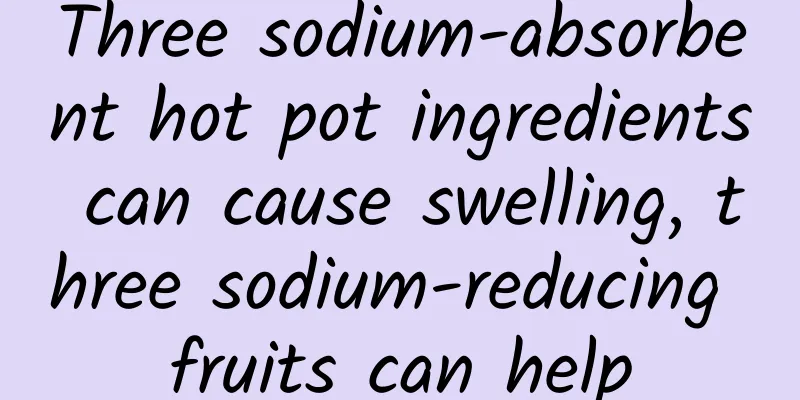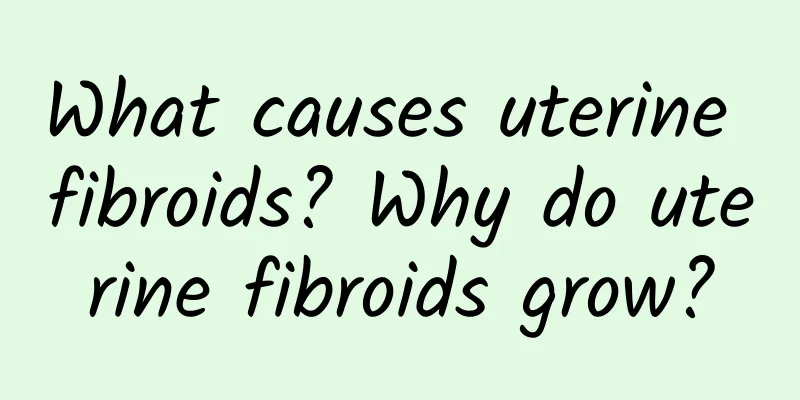Three sodium-absorbent hot pot ingredients can cause swelling, three sodium-reducing fruits can help

|
Spicy hotpot, shabu-shabu, kimchi pot, curry pot, milk pot... Many people are die-hard "hotpot lovers". They will feel unwell if they don't eat 3 pots a week. However, nutritionists remind you to avoid 3 types of sodium-absorbing ingredients when eating hotpot, drink less soup base, and consume more 3 high-potassium fruits after the meal to avoid accumulating too much sodium ions in the body, which may cause health concerns such as edema and blood pressure. Hotpot consumes a lot of sodium! Be careful of edema, migraine, and osteoporosis Taiwanese people love hot pot, especially in winter. As soon as the temperature drops, long queues form in front of hot pot restaurants. However, no matter which kind of hot pot you eat, you must be careful about the "sodium" crisis behind the delicious taste! Eating too much sodium in hot pot can not only cause edema, migraines, and worsen dark circles under the eyes, but also increase the risk of high blood pressure, stroke, osteoporosis and other diseases. No matter which kind of hot pot you eat, be careful of the "sodium" crisis behind the delicious taste! Melon ranks first among the top three sodium-absorbing foods According to the Ministry of Health and Welfare, the recommended daily sodium intake for adults is 2,000 mg. However, the New Nutrition Food Generation team once conducted sodium content tests on 12 hot pot restaurants in the central region and found that although the soup base flavors and recipes of each restaurant are different, on average, the sodium content of every 100 milliliters (equivalent to the capacity of half a bowl) of soup base is about 200 to 300 mg. As the hot pot continues to heat, more water evaporates and the sodium concentration becomes higher. The sodium content of hot pot soup base is too high. Is it okay to drink less soup and eat the ingredients in the hot pot instead? Take a look at what you are eating first! During the hot pot cooking process, the texture of the ingredients will become soft and easier to absorb the sodium in the soup base. The New Nutrition Food Generation team found through experiments that among 15 common ingredients including pumpkin, loofah, mushrooms, fried bean skin, glass noodles, frozen tofu, meat slices, seafood, and leafy vegetables, the top three sodium-absorbing ingredients are: 1. Melons (spread gourd, loofah), 2. fried bean skin and mushrooms, 3. glass noodles and frozen tofu . The sodium content before and 15 minutes after cooking in the hot pot can differ by more than 10 times, or even more than 100 times. An experiment conducted by New Nutrition Food Generation found that melons such as loofah and sponge gourd have an amazing ability to absorb sodium in hot pot. The sodium absorption rate after being cooked for 15 minutes is about 100 times higher than before cooking. Eating too much high-sodium foods! 3 high-potassium fruits to help excrete sodium What should I do if I accidentally eat too much sodium? Nutritionist Zheng Shijia from the New Nutrition Food Generation team recommends that after eating hot pot, remember to eat more high-potassium fruits! Potassium can help excrete sodium, maintain the balance of minerals in the body, reduce edema, and protect blood vessel health. [Sodium removal expert: Top 3 high-potassium fruits] The Chinese diet generally has the problem of "high sodium and low potassium", while the U.S. "Dietary Reference Intakes" (DRIs) recommends that adults should consume 4,700 mg of potassium per day, which can usually be obtained from vegetables, fruits, and whole grains and root vegetables. Here are three high-potassium fruits: 1. Golden Cherry Tomatoes: Each serving of Golden Cherry Tomatoes contains about 22 tomatoes and contains about 335 mg of potassium. In addition, tomatoes are rich in lycopene, a member of the carotenoid family. It has antioxidant properties, can scavenge free radicals, regulate unbalanced oxidative pressure in the body, and reduce the incidence of cardiovascular disease. Tomatoes and kiwis are rich in potassium ions, which help the body excrete sodium and maintain health. 2. Kiwifruit : Each serving of kiwifruit is about one kiwifruit, which contains about 335 mg of potassium. In addition to helping balance sodium and potassium in the body, kiwifruit contains an average of about 116 mg of vitamin C per 100 grams. It is a high-C food and can help improve symptoms caused by vitamin C deficiency, such as nutritional deficiencies, fatigue, depression, and irritability. 3. Bananas: Each serving of banana is about half a banana and contains about 258 mg of potassium. Moreover, bananas are rich in a high proportion of tryptophan, which is the raw material for synthesizing serotonin in the body. Serotonin can promote relaxation, maintain a happy mood, and also help sleep. [Nutritionist's Tips]: In addition to consuming high-potassium foods, drink less soup when eating hot pot, remove high-sodium foods from the pot immediately after about 10 minutes, replace sodium-intensive vermicelli with white rice or udon noodles, reduce processed foods and dipping sauces, and drink more water after meals, which can also help the body excrete more sodium. |
<<: Girls are crazy about "cream coffee wine" and nutritionists say it's full of calories
>>: Hidden fat! The fattening devil in the tofu family is actually...
Recommend
What are the dietary taboos for uterine fibroids? 4 types of food that must be avoided for uterine fibroids
Patients with uterine fibroids should avoid eatin...
What kind of women are prone to vulvar leukoplakia? What kind of women are prone to gynecological diseases?
What kind of women are prone to vulvar leukoplaki...
Can I drink milk after miscarriage?
The diet after miscarriage should be balanced and...
The harm of long-term treatment of endometrial tuberculosis
At present, there are many women suffering from e...
Ectopic pregnancy may be caused by appendicitis perforation
Ectopic pregnancy may be caused by appendicitis p...
Low GI controls blood sugar spikes! Nutritionist: 4 ways to judge healthy eating
In recent years, the "low GI diet" has ...
Why does breast pain occur before menstruation?
Breast pain is a very common phenomenon in women....
How to eat during fasting? Nutritionist reveals: 6 types of food that will make you thinner the more you eat
How to eat during fasting? How to eat during fast...
What are the main clinical manifestations of cervicitis?
Regarding the symptoms of cervicitis, patients ca...
What is the cause of uterine fibroids?
What is the cause of uterine fibroids? The incide...
Many diseases are caused by the harm of pelvic inflammatory disease
There are many factors in real life that can lead...
Is it serious to have ovarian cysts? Do I need to be treated immediately?
Ovarian cysts are very harmful. Severe ovarian cy...
US study: Elderly people may suffer from memory loss if they consume too many calories
Alzheimer's disease, also known as "Alzh...
What are the symptoms of female cervical erosion? How to treat female cervical erosion?
Cervical erosion is a type of female disease. Tod...
Why haven't I had my period yet after 30 days of abortion?
If menstruation does not come 30 days after abort...









